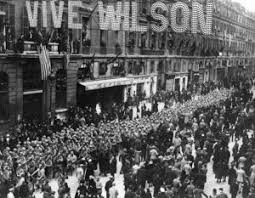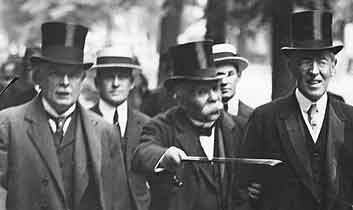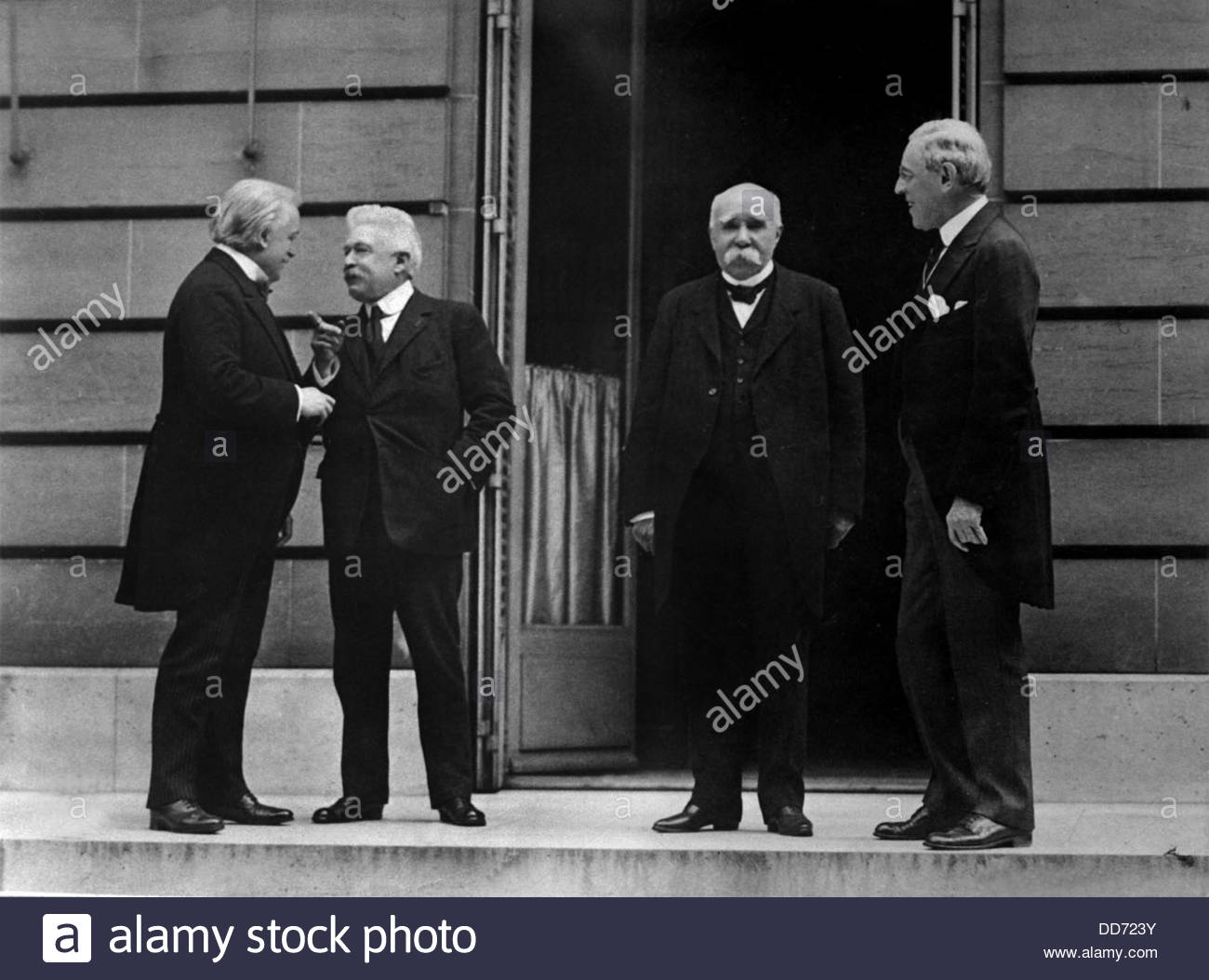The Problem with Self-Determination:
A Pandora’s Box of Global Claims.
But Who Really Won the War?
Allies Not Pleased with Wilson’s View.
Special to The Great War Project
(17 December) President Wilson’s arrival in France is nothing less than remarkable.
So observes historian Thomas Fleming. “On the president’s last night at sea, nine American battleships and twenty destroyers joined Wilson’s flotilla. France sent almost as many warships. A veritable armada escorted the president.”
“Soon he was aboard a train to Paris,” Fleming continues, “where reporters glimpsed the first indications that Wilson had already achieved semi-divine status. In many villages people knelt beside the track in the dark, their hands clasped in worship, as the train thundered past.”

Wilson in Paris.
“Wilson’s reception in the French capital was one of the most spectacular events of the twentieth century.
Two million Parisians jammed the streets screaming Vive Wilson and Vive l’Amerique.”
“A huge banner saluted Wilson Le Juste. Wilson rode beside French President Raymond Poincare, acknowledging the delirious cheers with sweeping waves of his high silk hat.”

Leaders of the big three Allies in Paris, David Lloyd George, Georges Clemenceau, and Wilson
President Wilson takes up residence at a French palace the size of the White House, but more spectacularly beautiful.
Writes historian Fleming, “it was a setting worthy of an emperor.”
Initially the French tried to fill Wilson’s days with visits to battlefields. Wilson resisted, responding: He did not need to view the havoc to become convinced “that the peace treaty should provide ‘just punishments’ for the enemies’ depredations.”
But the French are not satisfied when Wilson declines the battlefield visits. Newspapers questioned his decision, fearful that Wilson will be too soft on the enemy. The pressure on the president is so strong that he finally relents, and he visits the battlefield at Rheims, where he remarked, the famous cathedral did not seem as damaged as he had thought.
This does not go down well with the French.
Unexpectedly, the participants decide to postpone the opening of the peace conference until January 18th 1919: more than a month away. What to do?
Initially, Wilson floats the idea that he could receive delegations from far and wide to discuss their claims of self-determination, but Wilson and his advisers soon realize that is fraught with difficulties.
Writes Fleming, “The idea had opened a political Pandora’s Box that would be difficult if not impossible to close. Albanian warlords, tribal chieftains from obscure valleys in the Caucasus and Carpathian mountains, would-be politicians from Armenia, the Ukraine and Bessarabia appeared at the gates of Wilson’s palace seeking redress and recognition.
“Among the more exotic was a delegation from the mountains of northern Austria,’ Fleming reports. “They spoke Polish and did not want to be part of the new nation Czechoslovakia. Would the great Voodrow Veelson please solve their problem?”
“Partly to escape this ordeal, Wilson decided to make ceremonial visits to Great Britain and Italy. He had planned to visit both countries at some point in his European sojourn. Why not now when a warm reception would, he hoped, enhance his political potency at the peace conference?”

The Big Four Allies
But it did not go as smoothly as the Americans had hoped, partly because Wilson spread the view that American intervention had won the war, and he was now in charge of reordering the world.
“Very few prominent Britons were prepared, Fleming writes, to swallow this claim without gulping hard.”

1 comment for “WILSON IN FRANCE, NOTHING SHORT OF SPECTACULAR”